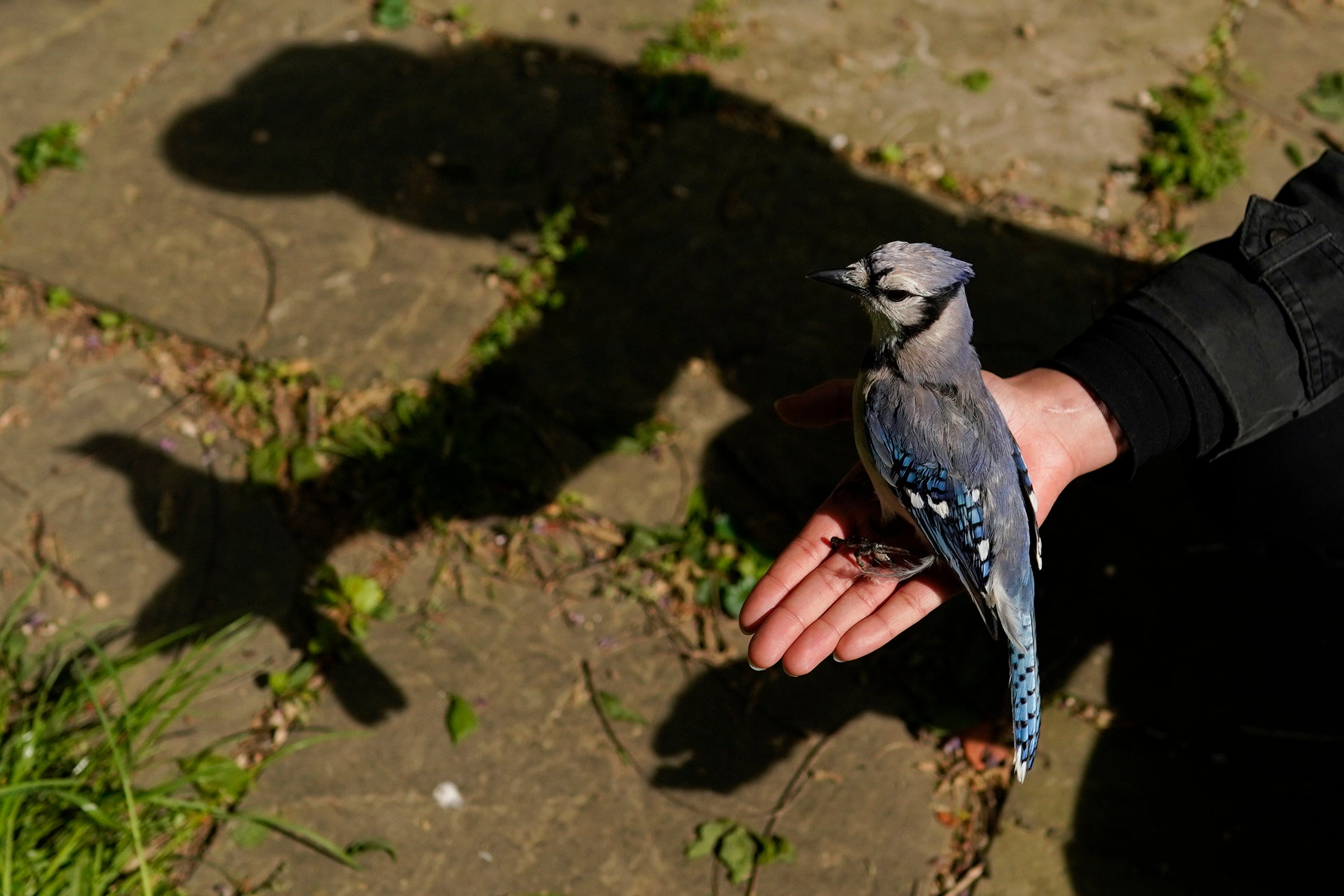EXPLAINER: What’s making mid-Atlantic songbirds sick?
Scientists are racing to confirm the cause of a mysterious ailment that has sickened and killed thousands of songbirds in several mid-Atlantic states

Your support helps us to tell the story
From reproductive rights to climate change to Big Tech, The Independent is on the ground when the story is developing. Whether it's investigating the financials of Elon Musk's pro-Trump PAC or producing our latest documentary, 'The A Word', which shines a light on the American women fighting for reproductive rights, we know how important it is to parse out the facts from the messaging.
At such a critical moment in US history, we need reporters on the ground. Your donation allows us to keep sending journalists to speak to both sides of the story.
The Independent is trusted by Americans across the entire political spectrum. And unlike many other quality news outlets, we choose not to lock Americans out of our reporting and analysis with paywalls. We believe quality journalism should be available to everyone, paid for by those who can afford it.
Your support makes all the difference.A mysterious ailment has sickened and killed thousands of songbirds in several mid-Atlantic states since late spring. While scientists are still racing to confirm the cause, it seems juvenile birds may be most susceptible. The U.S. Geological Survey, which oversees responses to some natural hazards and risks, has recommended that people temporarily take down bird feeders and clean out bird baths to reduce places that birds could closely congregate and potentially spread disease.
WHICH BIRDS ARE AFFECTED?
So far the majority of birds reported as ailing have been fledgling blue jays, American robins, European starlings and common grackles, but other songbirds are also affected.
The main visible symptoms are swollen eyes or crusty discharge around the eyes, as well as off-balance movements that may indicate neurological damage.
WHERE ARE BIRDS GETTING SICK?
Wildlife managers and veterinarians first received reports in late April and May of sick birds in Maryland, Virginia, West Virginia, Kentucky and Washington DC. More recent reports have come from Pennsylvania, Delaware, New Jersey, Ohio and Indiana. The outbreak may have peaked in June and be declining in some early hotspots, but it's ongoing in other regions, according to Brian Evans, a bird ecologist at the Smithsonian National Zoo & Conservation Biology Institute.
WHAT'S CAUSING THE SICKNESS?
Scientists at the USGS, the Smithsonian and universities are still working to determine the causes. Through testing of sick and deceased birds, they have determined that this outbreak was not primarily caused by Salmonella, Chlamydia, avian influenza virus, West Nile virus or a few other pathogens that commonly afflict birds.
WHAT CAN I DO TO HELP?
USGS is recommending that people remove backyard bird feeders, avoid handling sick birds and keep pets away from birds. The agency also recommends that people with bird baths disinfect them with a solution of 10% bleach and 90% water.
“Because we don’t know what it is, we have to be that much more vigilant. We still don’t know if it’s caused by a virus or a bacteria" or a toxic chemical in pesticides, said Jordan Rutter, director of public relations at the American Bird Conservancy, a nonprofit group.
However, removing bird feeders doesn’t have to mean ignoring the needs of birds. Rutter suggested that people with yards could incorporate native plants that provide food, such as berries and nectar, while also attracting insects birds eat.
HOW UNUSUAL IS THIS OUTBREAK?
Birds are susceptible to several viruses and bacteria. When a contagious pathogen begins to spread among birds in an area, wildlife managers typically recommend that residents remove outdoor feeders. This spring an outbreak of salmonella among wild songbirds in several states caused the Centers for Disease Control and Prevention to issue such a warning.
What’s different in this instance is that scientists do not know the cause of the ailment.
___
Follow Christina Larson on Twitter: @larsonchristina
___
The Associated Press Health and Science Department receives support from the Howard Hughes Medical Institute’s Department of Science Education. The AP is solely responsible for all content.